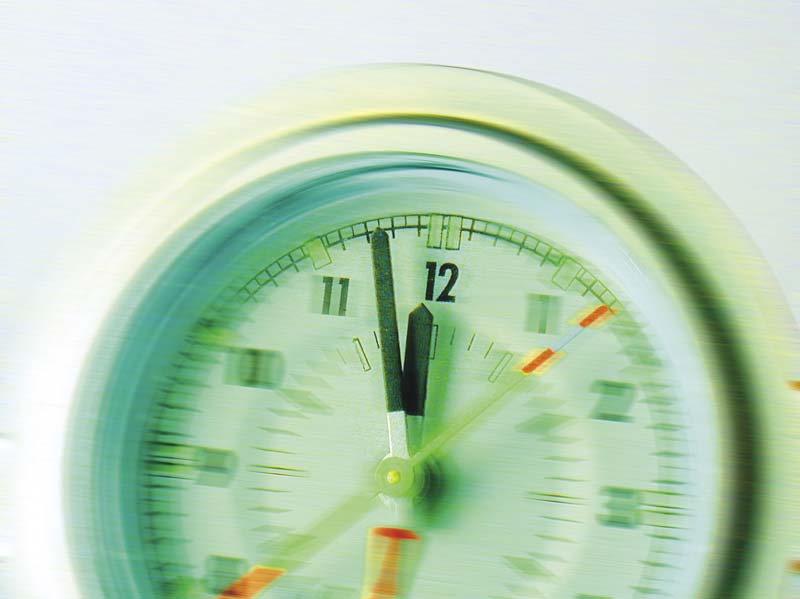
Sanders' political health is another matter.
Not that there's ever a good time to be sidelined by arterial stents, but Sanders' health scare is particularly inconvenient. Once a solid runner-up to former Joe Biden, Sanders is now a distant third in most national polls, trailing the former vice president and the Democrats' emerging frontrunner, Massachusetts Sen. Elizabeth Warren.
The last thing Sanders needs is any kind of buzz that leads to a uncomfortable subplot with regard to his second presidential run: the fitness of a 79-year-old man taking on the stress of seeking a party's nomination.
Ask anyone who's worked a presidential campaign and they'll tell you: the days are long, diet and exercise suffer, the stress is considerable, sleep is a casualty. To the extent a candidate is willing to stop and recharge the batteries, it's usually the work of an insistent spouse – or the body saying enough is enough (Biden's a good example of this: back in 1987, he traveled the campaign circuit with a big bottle of Tylenol in tow, unaware that he was dealing with cranial aneurysms that nearly killed him).
What Sanders' health also leads us to: the gerontocracy that is the politics of 2020 – and a question of who takes advantage of the void Democratic field should the Vermont senator continue to further slide in the polls,
About the gerontocracy: Sanders turned 79 last month; Biden turns 77 a week before Thanksgiving; Warren celebrated her 70th birthday back in June. That's a combined 226 years in age – 17 years fewer than the republic itself.
Those three Democrats are competing for the right to face off against an incumbent president who turned 73 a week before Warren joined the septuagenarian club. The winner gets to match wits with House Speaker Nancy Pelosi (five months Sanders' elder) and Senate Majority Leader Mitch McConnell (exactly nine months Biden's elder).
This is a long-winded way of suggesting that an opening may emerge, among the Democratic contenders, for an alternative to a fading Sanders – a decidedly younger alternative, that is.
Only, which Democrat? Let's take a look at the Real Clear Politics poll average of the 2020 candidates and look for clue:
The obvious choice, and he's in fourth place at present: South Bend Mayor Pete Buttigieg (he stands at 5.5%, in the RCP average whereas Sanders is at 16.8%, Warren at 24% and Biden at 26%).
"Mayor Pete" turns 38 in January. If elected, on Inauguration Day he'd be four years younger than JFK and eight years younger than Barack Obama (if you want to play along with the JFK theme, there's a Buttigieg high school essay parked in the Kennedy presidential library).
But ich bin ein Bernie Bro?
In April, Buttigieg suggested that Sanders was incapable of stitching together 270 electoral votes. He also inferred that Sanders was little different from Trump in likewise benefitting from disgruntled voters. How to further alienate oneself with Sanders supporters? In September, Buttigieg unveiled a health plan that bears a toxic qualifier in Democratic primary circles: middle-of-the-road.
Next up: California Sen. Kamala Harris (she turns 55 later this month). In August, Harris told fundraisers that she "has not been comfortable" with Sanders' Medicare-for-All proposal – an odd thing to say considering that she was the first senator to co-sponsor Sanders' legislation.
Where I would look in the field, should Sanders tumble further: Hawaii Rep. Tulsi Gabbard. Not because I think she has a shot at the nomination, but because she may be the most "Bernie" in the bunch in that: (a) she's less than one-half Sanders' age, but just as progressively strident; (b) resigned her post as the vice chairwoman of the Democratic National Committee in 2016, giving Sanders needed military street cred (Gabbard once served in a combat zone in Iraq); and (c) not only supported Sanders during that election, but nominated him at the 2016 Democratic National Convention.
And one other thing: Iowa.
It's that state, home of the nation's first presidential caucuses, which is a key to Warren's success (she wins there and New Hampshire and pretty much clears the field, conventional wisdom suggests). But there's also a question of who else advances from the nation's first presidential caucuses other than, presumably, Warren and Biden.
Not that Gabbard will come close to winning Iowa, but she could benefit from expectations. And at 2% or less in most Iowa polls, does Gabbard have anywhere to go but up?
Watch for Gabbard on the debate stage later this month. Absent from the last candidates' festivities (life isn't always fair: Gabbard was the most Googled candidate after the second Democratic debate, but didn't qualify for the third), is there a difference with her noticeably present?
With, we assume, a more subdued Sanders than the red-faced angry fellow who was on display at that last debate in Houston (I'm guessing his doctors are telling the patient not to push his luck), does Gabbard try to "out-Bernie" the original article in terms of socialist outbursts?
Democrats, take heart: Bernie's health status has made this race all the more curious.
Sign up for the daily JWR update. It's free. Just click here.


 Contact The Editor
Contact The Editor
 Articles By This Author
Articles By This Author